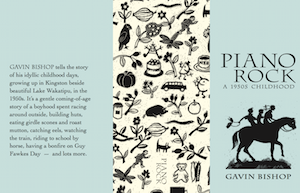Handwriting competition aims to improve children’s literacy skills

 A new handwriting initiative for Kiwi school children aims to help improve literacy and language skills through letter-writing.
A new handwriting initiative for Kiwi school children aims to help improve literacy and language skills through letter-writing.
More than one million adults in New Zealand experience literacy difficulties in their everyday lives, and anecdotal evidence from new entrant teachers indicates that children are arriving at school with fewer words in their vocabularies than even a decade ago.
A report in October last year highlighted concerns from government-funded literacy resource teachers, who are dealing with double the number of students as they were 13 years ago, and said some schools have waiting lists of students struggling with reading and writing.
The very first ‘Get NZ Writing’ initiative aims to combat the trend by emphasising the importance of writing to develop language skills and retain information.
International research has proven that when students practise printing by hand, they learn how to read and write more quickly and more accurately.
Created by Warehouse Stationery, the initiative will see free handwriting kits sent to every primary school in the country to encourage pupils to practise their writing skills and take part in a competition to find New Zealand’s best handwriter.
Three children will be chosen from their age groups as the best handwriters in the letter-writing competition, which will be judged by Kiwi children’s book author Gavin Bishop and well-known theatre writer and actor Miranda Harcourt ONZM.
Mr Bishop, who has written and illustrated 60 children’s picture books and is an Officer of the New Zealand Order of Merit, says the importance of writing and reading cannot be underestimated.
“Reading and writing is the basis of all learning, and there is something very special about being able to compose a handwritten letter that I think helps children and adults really understand the words and concepts they are using,” Mr Bishop says.
“Handwriting has always been important to me. I learned to write with a dip pen at primary school and then when I attended Art School at Canterbury University it was compulsory to learn Italic handwriting.
“I wasn’t very keen on it at the time, but now I am most grateful to have that skill, and it is an asset to be able to hand write a letter on an occasion when a typed or emailed letter will not do.”
Ms Harcourt, a mother of three, says she feels passionate about the written word and has published the literacy and numeracy works Miranda’s Alphabet and Miranda’s Numbers.
“I am a great fan of handwritten letters and cards. Our kids’ grandparents love to get family news and views written by their grandchildren. And it makes total sense that the research tells us kids learn better if they write information down.
“I am an actor and we often write out our lines again and again as a way of knowing the text more deeply. One of my favourite things is to illustrate letters, ‘illuminated text’ they call it. I call it doodling, but whatever the name, putting pen to paper packs an emotional punch for both the writer and the receiver.”
Warehouse Stationery CEO Pejman Okhovat says the new campaign is designed to capture the feel-good factor of writing which some children may not have a strong connection with due to the increasing use of emails and text messaging to communicate.
“We are committed to helping Kiwi kids learn and develop to the very best of their potential, and we hope this week will ignite enthusiasm in many children for letter-writing and the skills that go along with it.”
The three winners will be announced in August and each winner will receive a $500 Warehouse Stationery voucher for themselves and a $1000 stationery voucher for their school.
Literacy Aotearoa
http://www.literacy.org.nz/aboutus.php
Literary Resource Teachers
http://www.nzherald.co.nz/nz/news/article.cfm?c_id=1&objectid=11335907
New entrant teachers
http://www.radionz.co.nz/national/programmes/ninetonoon/audio/20174080/the-importance-of-talking-and-reading-to-children
Handwriting still important
http://beaconnews.ca/blog/2015/01/handwriting-still-important-skill/









